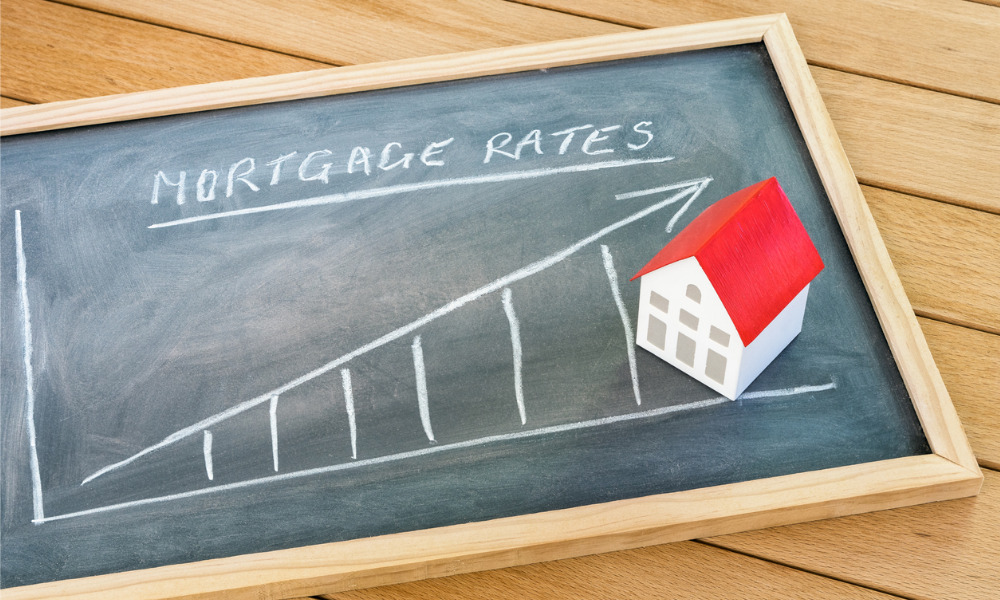The lending giant predicts the RBA will hike rates sooner rather than later

Commonwealth Bank expects mortgage stress to come soon for many borrowers. Australia’s largest home lender is predicting that the Reserve Bank will hike interest rates at the first opportunity following the federal election.
CBA economists have moved their forecast for the year’s first rate hike up to June, according to The Australian. The bank is predicting four hikes this year as inflation becomes entrenched in the RBA’s 2%-3% target band and wages continue to grow strongly.
“The economy is not static,” CBA head of Australian economics Gareth Aird said in a research note. “Interest rate increases will generate changes in behaviour, which in turn will impact economic outcomes.”
The research note projects that the cash rate will rise to 1.25% next year and tips a 10% drop in home prices over 2023.
CBA estimated that there are more than one million home loan borrowers who have never experienced a mortgage rate increase. Aird told The Australian that the critical issue for borrowers wasn’t the change in the cash rate, but the fact that, for many homeowners, mortgage rates would likely double from around 2% to 4% over the next 18 months.
Read next: CBA moves to ease sting of rate hikes for stressed borrowers
“That will have a material impact on the economy, and the RBA won’t have to raise official rates beyond 1.25%,” he said.
May 21 is the last possible poll date if the Morrison government intends to hold a normal election, The Australian reported. CBA predicts that the RBA will shift to an “explicit hiking bias” at its May board meeting after underlying inflation numbers for the March quarter are released.
There are about $500 billion of fixed-rate mortgages set to expire over the next two years, The Australian reported. CBA estimates that the average fixed-rate loan is between 2.25% and 2.5%.
“Borrowers rolling off fixed rates will be refinancing loans at a materially higher rate, which will have a significant impact on the interest cost of debt and household finances,” Aird told the publication.



